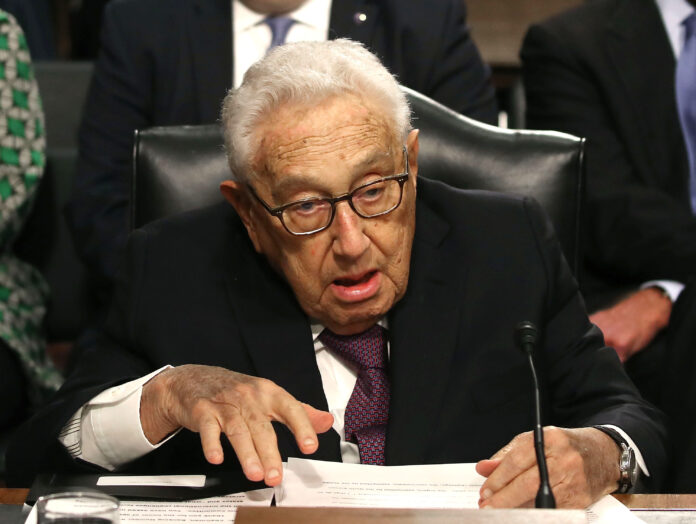As the calendar turns to May 27, a contentious figure in American history will be marking his 100th birthday: Henry Kissinger. Known for his time as secretary of state under Presidents Richard Nixon and Gerald R. Ford, Kissinger’s legacy in foreign policy has been debated and criticized over the decades.
In comparison to the turbulent Trump era and the tumultuous rise of the MAGA movement, the corruption of Nixon’s time might seem somewhat less shocking to some Americans who experienced it firsthand. However, during Nixon’s reign, controversy ran rife, especially concerning foreign policy – an area greatly impacted by Kissinger.
Kissinger’s strategies in diplomacy have been linked to massive bloodshed across the globe, with evidence suggesting that his maneuverings might have played a significant role in enabling horrific massacres in countries from Bangladesh and Cambodia to East Timor.
It’s all too easy to label Kissinger as a grandmaster of geopolitical strategy, a consummate player in international politics. But when we do the grim arithmetic, the numbers are horrifying – hundreds of thousands of lives lost in Bangladesh, Cambodia, and East Timor, possibly totaling a million. The Argentinean Dirty War claimed tens of thousands more. In Chile, thousands were killed and tens of thousands tortured under a military dictatorship, with a thriving democracy torn asunder. One could argue that these numbers, these lost lives, are the indelible stains on Kissinger’s hands.
Kissinger, originally from Germany, became a U.S. citizen in 1943. He joined Nixon’s administration in 1969 as a national security adviser and later ascended to the position of secretary of state in 1973, remaining even after Nixon’s resignation and Ford’s succession in August 1974.
The list of Kissinger’s questionable policies is long, stretching from extensive bombings in Cambodia to the unsettling overthrow of Chile’s socialist President Salvador Allende in 1973 – an event that was not only backed by Kissinger but was followed by a cruel fascist rule under General Augusto Pinochet. His influence didn’t cease there. During Ford’s tenure, Kissinger championed a coup in Argentina, which precipitated widespread human rights abuses.
To put it into perspective, in March 1976, a neo-fascist military junta toppled President Isabel Perón, triggering what is now referred to as the Dirty War. Political opponents, who were branded as terrorists, were subjected to torture, disappearance, and murder. And Kissinger? He seemingly gave this campaign of terror and murder a ‘green light’ during a private meeting in June 1976 with the junta’s foreign minister, Cesar Augusto Guzzetti.
As we acknowledge Kissinger’s centennial birthday, it’s vital that we recall the full extent of his legacy – the strategic successes and the tragic human costs. After all, in understanding our history, we shape our future.



